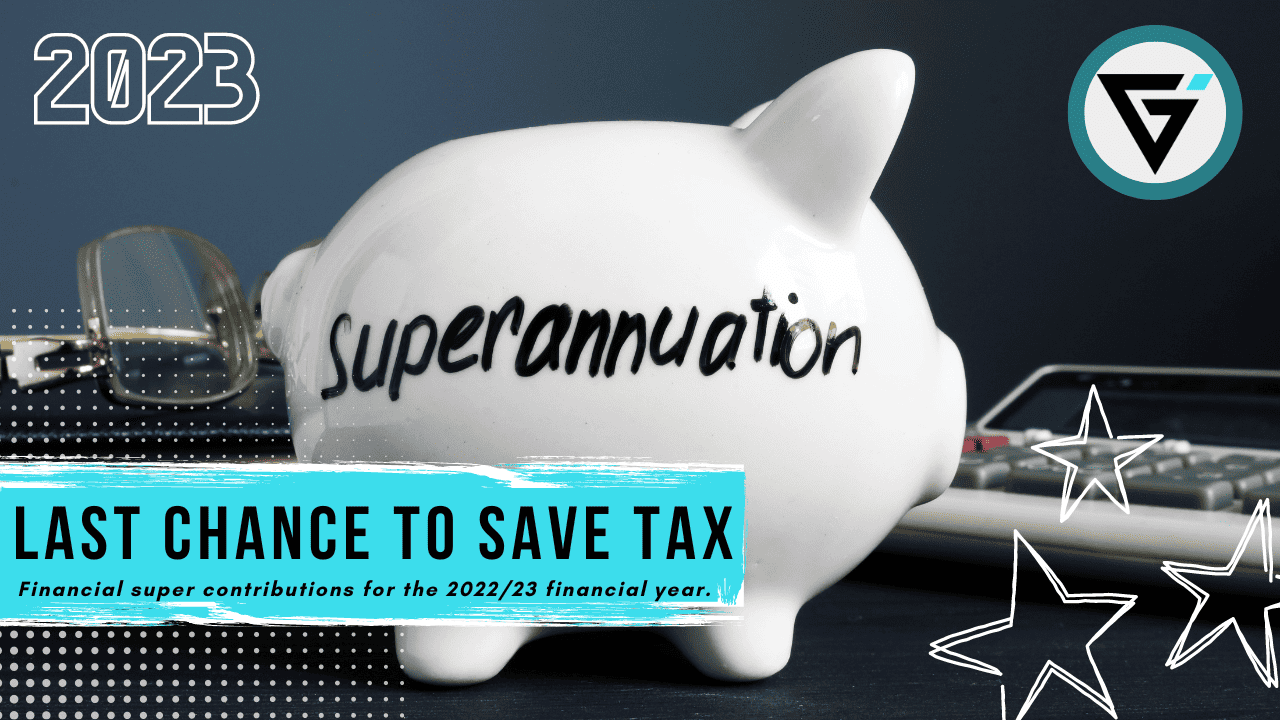I get this question all the time “Brad, what is the best super fund?” and it is a very difficult question to answer because it’s like asking “what is the best car?”.
Do you want a fast car, do you want a reliable car, do you want a petrol car, do you want an electric car, are you going off-roading, is the safety rating a top priority for you, do you have 10 kids?
So just like a car, the super fund that is going to be best for you is going to depend on your situation and what your intentions are. So today I am going to explain to you how you might best answer this question for yourself.
When judging what the best super fund is best for you, we need to consider the components that make up your final retirement balance. At the end of the day, the best super fund is going to be the one that gives you the most money at retirement and this will be a function of the following:
Balance at retirement = starting balance + contributions + investment returns – fees – premiums – tax.
Starting Balance
Kicking things off with the starting balance. This is the money you already have saved up in your super fund. Now unless you have a DeLorean time machine then there is not much you can do about this so let’s not spend any more time on it – it is what it is.
Contributions
Next up we have your contributions. Typically, all superannuation funds will accept contributions and it is up to you to make sure that your contributions are sufficient to give you an appropriate balance at retirement. There are a few instances however, where contributions need to be taken into consideration when choosing your super fund.
Firstly, there are some employers out there that have a corporate super plan. This is normally just a division of a large industry super fund. But sometimes employers will incentives you to contribute into their corporate plan by giving you additional employer contributions.
If, in your employment agreement, it states that you are entitled to additional contributions above the mandated 9.5% superannuation guarantee contributions when using a certain fund, then 99% of the time it is worthwhile going with that fund. You don’t say no to free money!
Also, with regards to contributions, there are the occasional untaxed super funds out there, like GESB West State Super, that possess some unique benefits when it comes to contributions. Unlike a typical taxed super fund, which has an annual concessional (pre-tax) contribution limit of $25,000 per financial year (increasing to $27,500 next financial year), they are subject to an untaxed plan cap amount.
The untaxed plan cap is currently $1,565,000 in the current financial year and is increasing to $1,615,000 next financial year. This means you are not subject to the standard yearly cap limit but can put as much money in pre-tax, at any time, provided that your total contributions don’t exceed the untaxed plan cap. For those people that have an untaxed fund, and are eligible to contribute to it, this gives you some fantastic tax minimisation and retirement boosting strategies.
Investment Returns
Next up we have investment returns and this is where superannuation funds differ….a lot!
The fund you are with is going to dictate what you can invest in. So, when deciding what super fund is right for you, you need to put some thought into where you want to invest.
If you are the type of person that doesn’t know much about investing and doesn’t have much of an interest in investing, then generally an industry super fund is going to be a good option. An industry fund will offer you some diversified investment options where your money gets pooled with other members and invested as a collective. All you need to do is pick the option which you think best matches your risk tolerance and financial position.
However, if you want to take more of a hands on or bespoke approach to your super, then there are funds out there that will allow you to do this. Given the right fund, you can invest in stocks, ETFs, LICs, managed funds, term deposits, annuities, and a range of other assets to tailor your own portfolio that specifically suits you. There are certain limits placed on how much money you can invest in any one particular asset, but these limits are normally quite reasonable and if you breach them, you really should consider if you are doing the right thing anyway.
And of course, there are self-managed super funds which will give you even more flexibility and allow you to invest in even more asset classes like physical property, crypto, and basically any asset class provided it’s done at ‘arm’s length’ and you don’t breach any of the rules such as the in-house assets test.
Now it is very hard to say which super fund, or which approach to managing your super, will outperform. Realistically, no one can answer this question. What you should be asking yourself is “am I comfortable with how my money is invested?”. Provided you are comfortable with your investments, and you understand how they work, then that’s a great place to have your retirement funds.
Fees
This one is an obvious one – fees. The less you pay in fees, the more you have.
When looking at fees you need to consider the platform fees, which is basically then administration fees for the super fund you are using, and the investment fees which is the fee associated with the chosen investment option.
Generally speaking, industry super funds typically have the lowest fees. They operate on a not-for-profit basis, and can provide a low-cost solution, particularly for those people that have small fund balances.
As you start to move into platforms which are more flexible with the investments, allowing you to take a more bespoke approach to managing your money, you can expect to pay more. These platforms typically also provide you better reporting so you can monitor and manage your money more closely.
Fees is the area where people often spend the most time and attention because it’s easy to understand and marketed the most. But just remember, fees are one component of your final balance. There is a lot more to consider and low cost isn’t always the best.
Premiums
Insurance premiums are going to detract from your retirement nest egg but, as I have said in the past, don’t get caught up with which super fund has the lowest premium.
Most super funds will have a default insurer that they work with however you have the ability to shop your insurances around to find the best deal. The only difference is, how you fund the premium.
If you use the super funds default insurer, the premium will come out as a fund expense. If you use an external insurer, you can generally fund the premium via an annual rollover. If you want more information on this, refer to my previous blog called ‘Structuring Life Insurance’.
Tax
Finally, we get to tax. You’re probably thinking that tax is equal among all super funds because superannuation has a flat legislated rate of 15% in accumulation phase…..well that’s right, but there’s more to it.
There are a few areas where super funds can differ with regards to tax and one of those areas is franking credits. If you don’t know what a franking credit is, it’s a rebate of corporate tax that Australian shareholders sometimes get with their dividends. If you hold dividend paying shares in your super fund, then it is likely that you will pay less tax within your fund due to the franking credits.
There can also be significant tax savings when transitioning from accumulation phase to pension phase. Some super funds will sell down your assets upon transition, which will trigger a capital gains tax event in accumulation phase. Other funds will allow you to transition the assets into pension phase without selling down the asset. This allows you to realise the capital gain in a pension account which is a 0% tax entity.
And finally, we have untaxed super funds. Tax isn’t levied on an untaxed fund until you leave the fund. The benefit of this is that you can generate investment returns on the tax before it is paid. It can however be a little confusing as your fund balance appears much higher than your actual benefit.
Final thoughts
So, you probably started reading this blog in the hopes that I would give you the single name of a fund that is THE BEST and instead you got me rambling on about all these different elements that make up a super fund. But unfortunately, it’s not one size fits all when it comes to super funds.
Hopefully after reading this, you have a better understanding of how super works and in turn can decide for yourself, with a little more research, which one is best for you.










